Report shows T-Mobile is still the fastest 5G provider at 16 out of 20 major U.S. airports
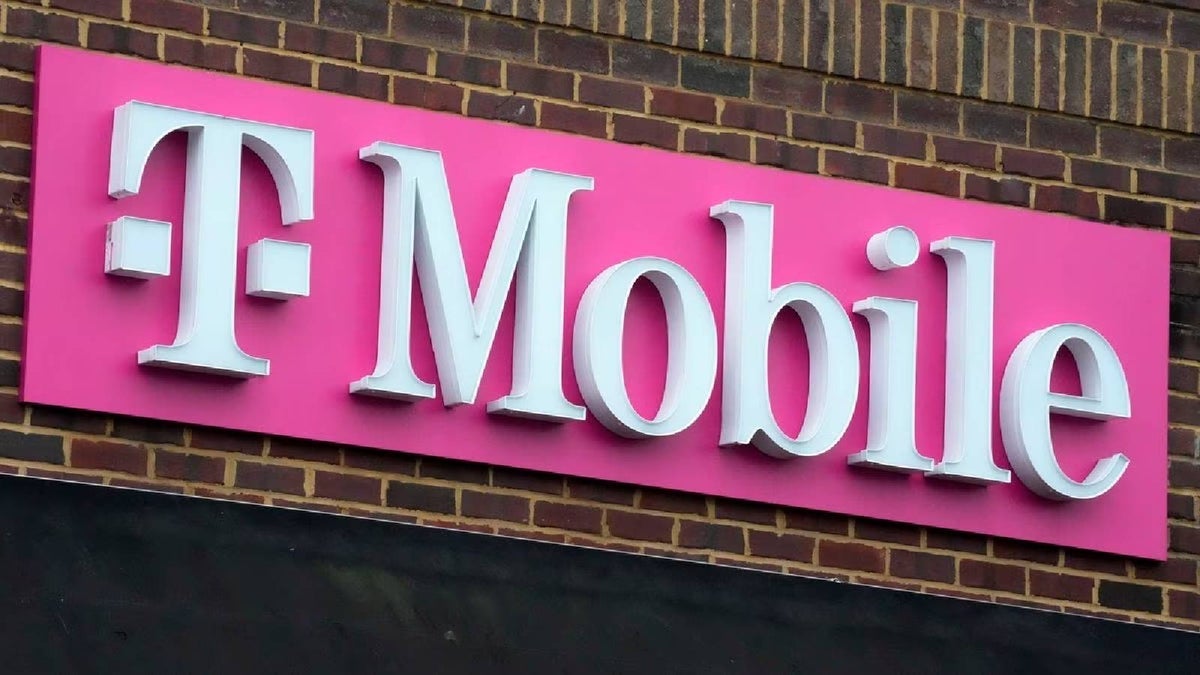
Research firm Opensignal released a new report today that noted how the 5G data speeds of AT&T and Verizon near airports improved sharply after the carriers were allowed to increase the power levels of their C-band spectrum near airports at the beginning of July. In addition, both firms added additional C-band spectrum in the area. First, some background. It all dates back to T-Mobile's $26 billion acquisition of Sprint, a deal that was made so that T-Mobile could get its hands on Sprint's hoard of 2.5GHz mid-band spectrum.
While AT&T and Verizon started building out their 5G networks using high-band airwaves, T-Mobile used the mid-band spectrum it obtained from Sprint. Because of the characteristics of high-band, AT&T and Verizon had to deal with a slower roll-out; despite offering faster download data speeds, mmWave signals are limited when it comes to reach. So what good are the higher data speeds when only a small percentage of your customers can connect to them?
Using mid-band spectrum acquired from Sprint, T-Mobile took the early U.S. lead in 5G
Meanwhile, mid-band proved to be the Goldilocks of wireless. Sure, it might not deliver the blazing fast speeds that mmWave can, but mid-band signals travel greater distances than high-band. As a result, T-Mobile was able to connect more of its customers to faster 5G signals. After seeing what was going down, AT&T and Verizon spent $68 billion between them to obtain licenses to use mid-band spectrum in the C-band.
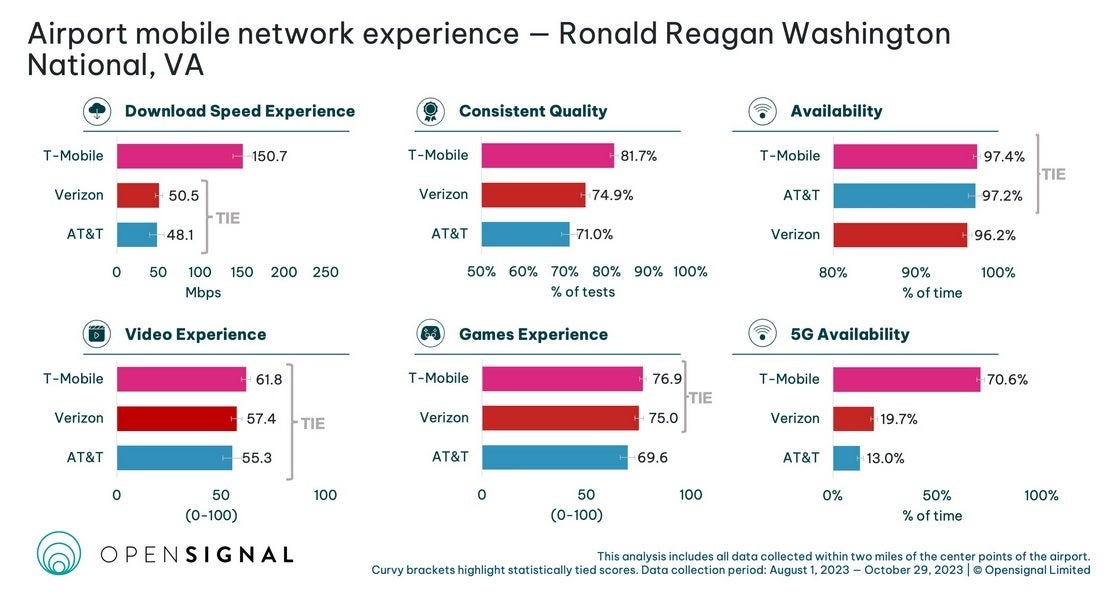
It was a clean sweep for T-Mobile's 5G services at this airport
There was one little problem. Some of the C-band airwaves that Verizon and AT&T picked up interfered with altimeters used by aircraft flying near airports. Since this instrument tells pilots how far off the ground the plane they are flying happens to be, AT&T and Verizon had to reduce the power of their 5G signals near airports while planes were being retrofitted with different altimeters.
On July 1st of this year, AT&T and Verizon were allowed to increase the power levels of their C-band 5G services and add additional C-band spectrum in the area. Opensignal measured two different 90-day periods. The first started on April 1st and ran until just before the two carriers were allowed to hike the power levels. The second 90-day period started August 1st and covers a period when the mitigation efforts had eased around the airports. The data was collected within two miles of the center point of 20 U.S. airports.
The data showed that AT&T and Verizon increased their 5G download data speeds sharply after the mitigation efforts eased. AT&T's 5G download data speeds rose 79.6% while Verizon's rose 62.1%. The pair's average 5G download speed was what Opensignal called a "statistical tie" at 126.9-132.2Mbps. T-Mobile's 5G download data speeds near these 20 airports did not show any change but the wireless provider's lead in speed at these airports over AT&T and Verizon did narrow.
Out of the 20 airports where data was collected, T-Mobile had the fastest 5G download data speed in 16 of them
Before AT&T and Verizon were allowed to increase 5G power levels on their C-band service near the 20 airports and put into operation additional C-band spectrum, T-Mobile's average 5G download speeds were 2.4 times faster than AT&T's and 2.1 times faster than Verizon's. After the easing of the mitigation, T-Mobile's lead has dwindled to 32-37.5%.
Still, results vary greatly depending on which airport you look at. For example, at Boston Logan International, AT&T customers enjoy the fastest average 5G download data speeds at 130.2Mbps which puts it in a statistical tie with T-Mobile's 114.8Mbps. At Chicago O'Hare International, AT&T was tops with an average 5G download data speed of 193.6 and T-Mobile was third with an average speed of 49.6Mbps.
At some airports, such as George Bush Intercontinental in Texas, there is a great disparity in the average 5G download data speeds. At that airport, T-Mobile is the fastest with an average of 120.6Mbps while AT&T was second with an average of 36.4Mbps and in a statistical tie with Verizon's 29.6Mbps.
Of the 20 airports used in the study, T-Mobile had the fastest average 5G download data speeds at 16 of them from August through October. AT&T was next as it had the fastest average at three airports while Verizon had the fastest average 5G download data speed at one airport.
The 20 airports included:
- Baltimore-Washington Thurgood Marshall
- Boston Logan
- Charlotte-Douglas
- Chicago O’Hare
- Dallas-Fort Worth
- Denver
- Houston George Bush Intercontinental
- Las Vegas Harry Reid
- Hartsfield-Jackson Atlanta
- New York, JFK
- Los Angeles
- Miami
- Nashville
- Newark Liberty
- Orlando
- Phoenix Sky Harbor
- Ronald Reagan Washington National
- San Diego
- San Francisco
- Seattle-Tacoma
Follow us on Google News

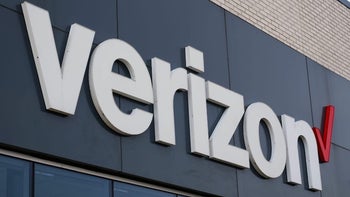
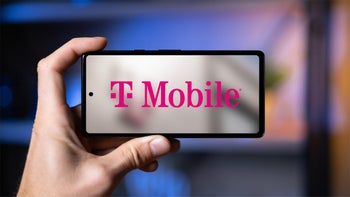
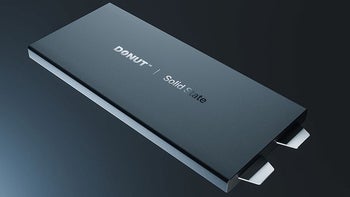

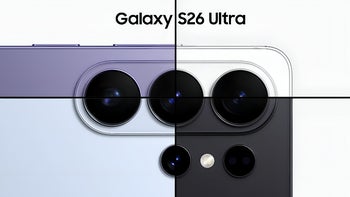
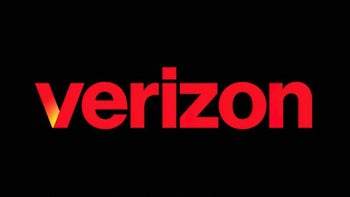

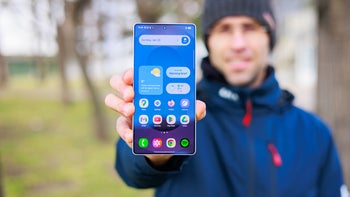
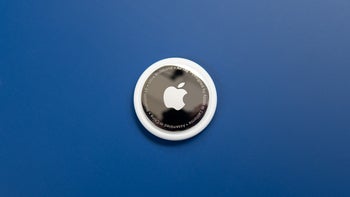
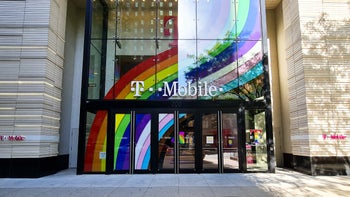
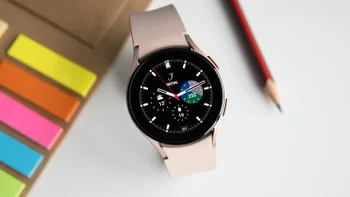

Things that are NOT allowed:
To help keep our community safe and free from spam, we apply temporary limits to newly created accounts: